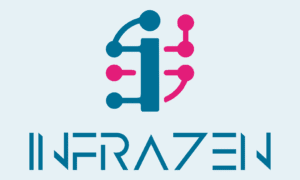
Introduction
Artificial intelligence (AI) is no longer a futuristic concept; it is a present reality that’s shifting the paradigm across various industries, including accounting. As we move deeper into the era of digitisation, accountants are discovering the immense potential of AI in streamlining processes, improving accuracy, and providing insightful data analysis. This article will delve into the impact of artificial intelligence on the accounting sector and how this technology is transforming the industry’s landscape.
Understanding Artificial Intelligence in Accounting
Artificial intelligence in accounting refers to the application of machine learning, natural language processing, and other AI technologies to automate and enhance various accounting tasks. These range from mundane data-entry tasks to sophisticated financial analysis and predictions. AI in accounting is all about leveraging intelligent systems to augment human capabilities, thereby enhancing the productivity and efficiency of accounting professionals.
AI and Accounting: A Symbiotic Relationship
The relationship between AI and accounting is symbiotic, with each element enhancing the other. On the one hand, AI provides the tools and technologies to automate routine tasks, analyse large volumes of data, and provide valuable insights. On the other hand, accounting provides a vast and complex data set, ripe for the application of AI. By applying AI to accounting data, businesses can derive deep insights that inform business strategies and decision-making.
The Role of Artificial Intelligence in Accounting
In the realm of accounting, AI plays several crucial roles. From automating repetitive tasks to analysing financial data for insights, AI is helping accountants work smarter, not harder. Here are the primary ways AI is transforming the accounting sector:
- Automating Routine Tasks: AI significantly reduces the time spent on tedious tasks such as managing invoices, data entry, and financial record keeping.
- Enhancing Financial Analysis: AI algorithms can analyse large volumes of financial data, identifying patterns, trends, and anomalies.
- Improving Accuracy: AI reduces human error in accounting processes, leading to more accurate data and financial reports.
- Strengthening Audit and Compliance: AI systems support auditing and compliance with corporate, state, and federal regulations by monitoring relevant documents and raising alerts where necessary.
- Enabling Real-time Reporting: AI enables the processing of financial data in real-time, providing businesses with up-to-date financial insights.
AI in Action: Examples in Accounting
The implementation of AI in accounting is not a distant possibility; it’s already happening. Here are some examples of how AI is currently being used in accounting:
- Invoice Processing: AI-powered software can accurately and efficiently process invoices, eliminating the need for manual input and reducing errors.
- Fraud Detection: AI tools can scan through financial data in real time to identify potential fraud issues and flag them for review.
- Financial Forecasting: With machine learning, AI can analyse historical financial data to predict future trends and inform business decisions.
- Audit and Compliance Management: AI can streamline the auditing process by managing financial documents efficiently, thus reducing the time and resources needed for audits.
- Expense Management: AI software can automate the management of expenses, reducing errors and potential fraud.
How Artificial Intelligence Benefits Accountants
The integration of AI in accounting brings forth numerous benefits for accountants.
- Time-Saving: AI automation drastically reduces the time spent on repetitive tasks, allowing accountants to focus more on strategic and decision-making roles.
- Improved Accuracy: By automating data entry and processing tasks, AI minimises human error, resulting in more accurate financial reports and data.
- Enhanced Data Analysis: AI’s ability to analyse vast amounts of data and derive meaningful insights is invaluable to accountants. It allows for a deeper understanding of a business’s financial status and facilitates informed decision-making.
- Streamlined Audit and Compliance: AI’s capability to manage and organise financial documents makes the auditing process smoother and more efficient. It also ensures adherence to regulatory standards, reducing the risk of non-compliance.
The Impact of AI on Accounting Jobs
Contrary to popular belief, AI is not a threat to accountants’ jobs. Instead, it is a tool that enhances their capabilities and increases their value within the organisation. AI takes over the mundane tasks, allowing accountants to focus on strategic and advisory roles. It also opens up new opportunities for accountants to upskill and take on roles that involve data analysis, strategic planning, and decision-making.
Challenges of Adopting AI in Accounting
While the advantages of AI are plentiful, adopting this technology is not without its challenges. Some of these include:
- Data Privacy and Security: With AI systems handling sensitive financial data, businesses must ensure they have robust security measures in place to protect this information.
- Integration with Existing Systems: The integration of AI technology with existing accounting systems can be complex and may require significant time and resources.
- Training and Adoption: For AI to be effective, accountants need to be trained to use and understand AI tools effectively. This may require an investment in training and development.
How to Leverage AI in Accounting
Accountants can leverage AI in numerous ways to enhance their productivity and efficiency. Here are a few strategies:
- Automate Routine Tasks: By automating routine tasks such as data entry and invoice processing, accountants can save time and reduce errors.
- Utilise AI for Data Analysis: AI tools can analyse vast amounts of data in real time, providing accountants with valuable insights to inform business decisions.
- Use AI for Audit and Compliance: AI can streamline the audit process and ensure compliance with regulatory standards, making these processes more efficient and less time-consuming.
- Invest in Training: To fully leverage AI, accountants need to be well-versed in using AI tools. Investing in training and development can help accountants maximise the benefits of AI.
AI and the Future of Accounting
The future of accounting is intertwined with AI. As AI technology continues to evolve, it’s expected to bring about even more significant changes to the accounting industry. Future applications of AI in accounting could include predictive analytics, real-time financial reporting, and even more advanced automation of accounting tasks. It’s clear that AI is not just a trend, but a fundamental shift in how accounting is done.
AI in Accounting: A Game Changer
Artificial intelligence is undeniably a game-changer in the accounting industry. By automating routine tasks, providing insightful data analysis, and improving accuracy, AI is revolutionising the way accountants work. As AI continues to evolve and improve, its impact on the accounting industry is expected to grow, making it an essential tool for modern accountants.
Conclusion
The integration of artificial intelligence in accounting is a transformative move towards greater efficiency, accuracy, and insights. While AI may initially seem intimidating, accountants who embrace this technology will find themselves well-equipped for the future of the industry. As AI continues to evolve, it’s clear that it will play an increasingly important role in accounting. The future of accounting is here, and it’s powered by AI.
As an accountant, it’s crucial to understand how artificial intelligence is changing the industry and learn how to embrace it. The seamless blend of AI and accounting is not only a testament to the rapid advancement of technology but also a clear indicator of the direction in which the industry is headed. By welcoming AI into their work, accountants can look forward to a future where they are no longer burdened by mundane tasks, and can instead focus on strategic roles that truly leverage their expertise.
